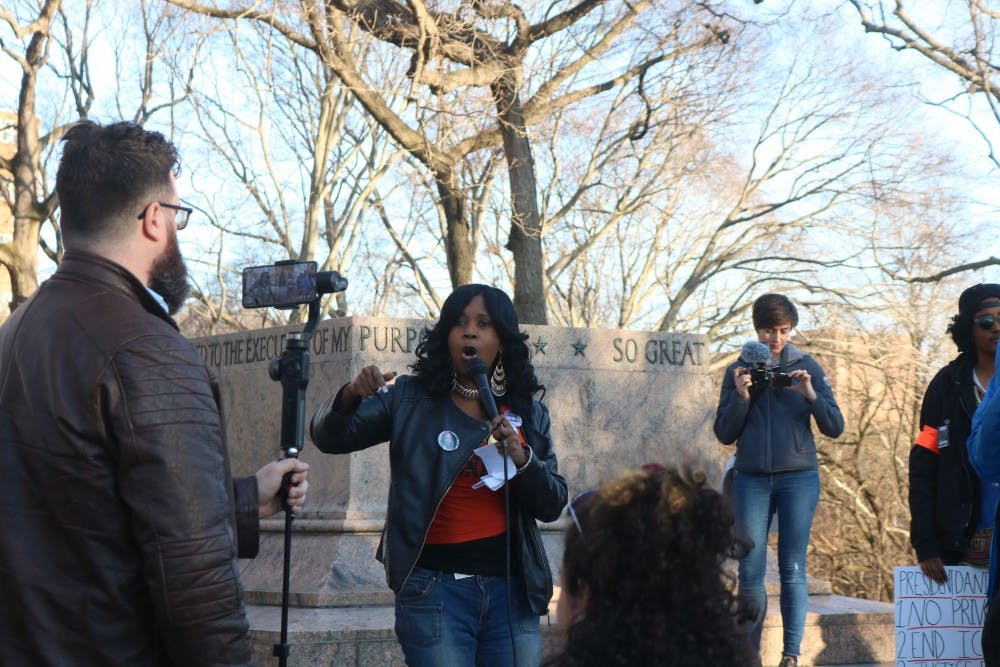I am a graduate student; I am an elected student representative of the Bloomberg School of Public Health; and I am a member of the Student Advisory Committee for Security (SACS). I came to Baltimore for Hopkins, but this city and the people here have grown on me. I joined SACS because I believed that the administration had the best interests of both the Hopkins and Baltimore communities in mind, that they wanted what was best for everyone.
As a member of SACS, I’ve been asked to participate in various meetings with administrators and East Baltimore Campus student leadership regarding safety and security and the Community Safety and Strengthening Act, a bill that will allow Hopkins to establish a private police force. Unlike SACS, these meetings are a little less structured and are an opportunity for the administration to provide legislative updates. And while people were forming opinions about the proposed bill, I actively tried to keep a neutral position.
A month ago I found myself in another one of those meetings. But the administration’s deflection and unwillingness to answer questions got me more heated than usual. At some point I used the words “shit” and “half-assed.” I did not and would make no apologies for doing so. I used these words to describe the quality of the process around this police force — the lack of transparency, unnecessary urgency, lack of adequate community input — the data produced and the Interim Study that the University published. This is the number one funded research institution in the U.S. with world-renowned faculty with expertise that would have been useful for the study. Yet we’ve been given an anonymous, perfunctory report, and it fails to meet the Hopkins standard. It’s infuriating that the people leading this institution can hold its faculty and students to a high level of caliber but not themselves.
Later that week, it was brought to my attention that the administrators in that meeting had privately commented to a Bloomberg School administrator on my outburst as “unprofessional,” “unproductive” and “too much.” I wasn’t surprised, given the insufferable tone policing I’ve witnessed throughout this process.
Tone policing is an example of ad hominem and is therefore a logical fallacy. People of power and privilege often use tone policing to avoid the discussion at hand and to instead attack the character, emotion or other attributes of the person making the argument rather than the argument itself. That I said “shit” and “half-assed” should not have made my argument any less valid: that Hopkins has failed its community. It seems that the administrators at that meeting chose to think otherwise.
The inherent nature of this fallacy is rooted in injustice. Historically, we’ve witnessed numerous examples of this, such as the Civil Rights movement and Black Lives Matter movement, where people of privilege tell activists to be quiet and polite. In his “Letter from a Birmingham Jail,” Martin Luther King Jr. condemned critics who used “maintaining order” to discredit peaceful protests and as a conduit to justify inequity; commenting on his “grave disappointment” with the “white moderate, who is more devoted to ‘order’ than justice”. We saw it throughout the 2016 election with Hillary Clinton, where instead of focusing on the content of her speeches, the media chose to comment on her “likability.” Unfortunately we’re seeing this play out again with the 2020 presidential candidates (mostly the female ones). Tone policing is a powerful tool to silence voices that need to be heard, and those voices are typically those that are not heard enough: black people, women, and, in this case, students and the Baltimore community.
This is problematic on a number of fronts, but at its core, it brings into question the level and sincerity of the dedication this institution has to the communities of which it is part of. When an institution yields as much money and power as Hopkins does, their primary concern should be with what we have to say, not the way we say it. The last thing they should be policing is whether or not something is appropriate or “professional” in a conversation, especially on something as high-stakes as this private police force bill. And if members of the administration were unable to handle my own visceral reaction that day, they certainly shouldn’t be authorized to be in charge of or liable for anything more serious or less accountable.
And this pattern of people in power silencing or ignoring the “unprofessional” doesn’t stop with Hopkins. How long will elected officials leave citizens of Baltimore in a constant power struggle with Hopkins? Hopkins may outspend us, but we cannot be outnumbered. Speaking truth to power begins now, and if our legislators don’t recognize and support us in that effort — vote them out.
Tyler Adamson is a second-year MPH student at the Bloomberg School of Public Health from Vancouver, Wash.





